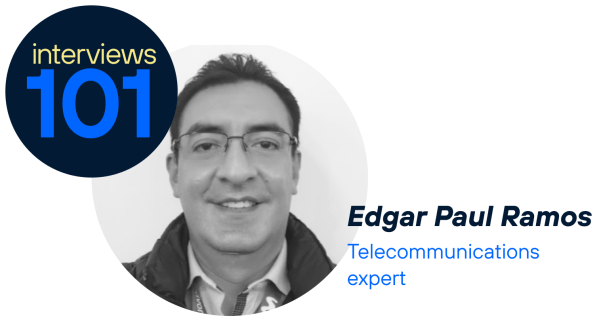Tell us a little about yourself and what your job at Telefónica involves.
Currently, my main role is to promote, influence and indoctrinate the use of the cloud at Telefónica Brazil, providing the necessary support so that the commercial departments use the technology in the best possible way and take advantage of the benefits of the cloud.
My team provides all the support necessary for the evaluation of the viability of a project, its conception, adoption in the cloud and deployment of resources, as well as support during and after the project phase, helping in the digital transformation work to modernise obsolete environments, always following best practices in cloud adoption.
We currently deploy more than 50 systems between projects and already operational environments, such as the Vivo+ customer service system, the Vicky system, responsible for managing the entire supply logistics chain, the entire Terra infrastructure, whose migration process was recently completed, and legal, financial and operational systems.
How important do you think the cloud is for businesses?
In a competitive market it is important that Telefonica Brasil retains its customers. According to Anatel (Brazil’s telecommunications regulatory agency) the main complaints are mainly conflicts with charges and the technical quality of services. Many of these complaints are related to the reliability of the environments, which leads dissatisfied customers to opt for a change of provider.
With the cloud we benefit from its wide and global distribution of data centres, offering infrastructure redundancy, with its variety of services we take advantage of the same redundancy to keep the most business-critical systems always online, avoiding unforeseen interruptions as much as possible in a 24×7 model.
The cloud is also a key factor for innovation, a very important issue for corporate survival. There is an ease of awarding new products and services through a catalogue with a wide variety of tools and various products from various suppliers within the scope of a click, thus avoiding awards and the costs with additional infrastructure for support.
And what about individuals?
As a telecommunications and technology company, we take our responsibility to protect our customers’ data very seriously. Cloud providers not only offer resources to improve the business, but also make available various security features and tools with the aim of reducing the risk of cyber-attacks and preventing the viewing of customer data.
We also use AI, which will revolutionise the way we connect and interact. AI tools in the cloud already make people’s lives easier through automated and personalised attention, as well as benefiting areas such as education and healthcare.
What are the main advantages of this technology?
The main advantage I see is the use of its APIs to automate an IAC (infrastructure as code) through which, with our own tools, we can deliver an entire infrastructure for a project in minutes, which is extremely useful when it comes to time to market, i.e. the speed that the business needs to launch new products and services.
At Telefónica Brazil we have Platform Code, an infrastructure deployment platform where the user can deploy their resources in an automated way, eliminating interactions with third parties and optimising project time.
What are the differences between different types of cloud storage?
In general, cloud providers offer very similar services, however, there are characteristics of each service that make them unique. One provider may offer a better service for data processing, while another may offer competitive and cost advantages.
This makes adopting the cloud a challenging and complex process. The key is to take advantage of the best benefits offered by each provider. This is called multi-cloud adoption and it is what the saying goes: ‘Don’t put all your eggs in one basket’, as this way you can optimise technology, resilience, performance and costs.
Where will the cloud evolve to?
Without a doubt, the evolution of the cloud follows the paths of artificial intelligence (AI). We are experiencing a race in this sector and the trend is for services based on this technology to continue evolving with the aim of automating processes, helping to combat digital fraud and improving information security, and assisting in executive decision-making through predictive data analysis, such as big data.
It is not surprising that investment in AI reached a record high in 2024, standing at around 100 billion dollars, with a forecast of reaching 1 trillion dollars by 2027, according to data from Goldman Sachs.
How will the development and advancement of other technologies influence the cloud?
Currently, the cloud is a centralising service, so it is difficult to imagine a new technology that is not in some cloud provider. However, what I see more clearly is the use of artificial intelligence.
There are many opportunities and applications for this technology, and the trend is to use AI more and more, for example, in smartphones to help people or in the IoT (Internet of Things) in personal devices.
In addition, it is necessary to pay attention to sustainability: the greater the demand and the advancement of solutions and the use of the cloud, the more energy is needed, so it is also necessary to invest in renewable energy strategies.
Which person at Telefónica who works in this department do you consider to be excellent at their job?
I have excellent colleagues who are experts in their fields, for example, Ednaldo Heleno da Silva, an expert in server virtualisation. He has recently been a great help in the migration of Terra’s infrastructure to the cloud and has been a major contributor to the success of the project.











